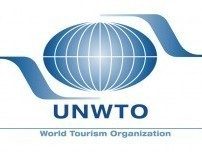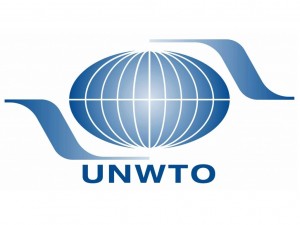UNWTO has expressed its full support to the decision of the Government of Indonesia to grant free visa to citizens from 169 countries. The visa-free policy is valid for a maximum stay of 30 days, has no restriction on the number of visits per year, and is non-extendable nor convertible to any other stay permit. Nationals of visa-free countries can enter Indonesia in any of the 124 immigration check points that the country possesses. “Indonesia is setting an example to the world. UNWTO welcomes the decision of the Government of Indonesia which clearly reflects the commitment of the country with the development of the tourism sector as a driver of economic growth, jobs and well-being for its people” said UNWTO Secretary-General, Taleb Rifai. The measure looks for attracting international tourism to the country by simplifying travel procedures and follows research by UNWTO and WTTC that shows that visa facilitation in the ASEAN economies could create between 333,000 to 654,000 new jobs in a period of three years. According to the UNWTO/WTTC Report Impact of Visa Facilitation in ASEAN Member States, ASEAN stands to gain 6 to 10 million additional international tourist arrivals from improved visa facilitation. The additional receipts generated by these tourists could reach between US$7 and US$12 billion.
Read More »India ranks 40th in international tourists arrivals: UNWTO
As per the UNWTO Barometer (May 2016), India ranks 40th in terms of International Tourists Arrivals during 2015. The FTVs during 2015 was highest in West (30.6%) followed by South (29.1%), North (28.4%), East (11.4%) and North East (0.5%). As per the Report of the ‘Working Group on Tourism’ for the 12th Five Year Plan (2012-2017) set up by the then Planning Commission, the requirement of additional hotel rooms under classified category in 2016 over 2010 is estimated to be 1,90,108. This information was given by Dr. Mahesh Sharma, Minister of State (I/C) for Tourism and Culture in a written reply in Rajya Sabha.
Read More »APAC records highest growth in international arrivals
UNWTO forecasts international tourist arrivals to increase by 3.5 per cent to 4.5 per cent over 2016, in line with UNWTO’s long-term projection of 3.8 per cent growth a year for the period 2010 to 2020. Asia and the Pacific (+9%) recorded the highest growth in international arrivals across world regions in January-April 2016, according to the latest UNWTO World Tourism Barometer. South-East Asia and Oceania both achieved 10 per cent growth, while arrivals in North-East Asia increased by 8 per cent and in South Asia by 7 per cent. Destinations worldwide received 348 million international tourists (overnight visitors) between January and April 2016, some 18 million more than the same period last year (+5.3%). This follows an increase of 4.6 per cent in 2015, and could make 2016 the seventh consecutive year of above-average growth, with international arrivals increasing by 4 per cent or more every year following the crisis in 2009. “Results show a strong desire to travel and this continues to drive tourism growth. Destinations keep benefitting from solid demand across all world regions despite ongoing challenges, showing that tourism is a dynamic and resilient economic sector,” said UNWTO Secretary-General Taleb Rifai. “Yet, despite these good results, the tragic events of recent months remind us that safety and security remain a major challenge for all. We must continue to work closely together to address this global threat and ensure tourism is an integral part of emergency planning and response at global, regional and national level,” added Rifai.
Read More »Brussels’ attacks: snowball effect on tourism?
Tourism Breaking News asked the travel industry about the effect of the Brussels terror attacks on tourism and received a mixed reaction. While some said that tourism trends will shift to other regions like South East Asia and short haul destinations, some believe that this is a short term effect and will be wiped off the traveller’s memory soon. On behalf of the international tourism community, Taleb Rifai, Secretary-General, UNWTO, condemned the terror attacks in Brussels and expressed heartfelt condolences to the families and friends of the victims and to the Belgian people.
Read More »PATA CEO’s seminar in Delhi on April 5
PATA CEO Mario Hardy and John Koldowski, Member Tourism Action Group, Thamassat University Thailand, will deliver a seminar on April 5, 2016 at The Park New Delhi, to help prepare tourism stakeholders for future growth, opportunities and challenges. Together with luminaries from UNWTO, WTTC, IATA, ICAO and World Economic Forum amongst others, PATA is engaged in building Tourism Advocacy across the world to ensure that Tourism is at the forefront of strengthening the global Visitor Economy. While Hardy is optimistic about the growing role and contribution of tourism in world economies, he will focus on how markets can get their fair share of this growth as well as address, both present day and futuristic challenges and opportunties. Hardy leads PATA’s charge at the Global Travel Association Coalition. John Koldowski, former Deputy CEO of PATA, is regarded as one of the leading analysts of the travel & tourism sector. He specialises in analysis and interpretation of information regarding movements and trends in the tourism sector based on emerging consumer preferences and destination development. Koldowski will share his in depth knowledge of the impact of global trends on Asia Pacific tourism.
Read More »No travel restrictions in Zika-affected countries: UNWTO
Following the declaration by the World Health Organization (WHO) of a Public Health Emergency of International Concern on the Zika virus, UNWTO recalls that according to WHO there should be no restrictions on travel with the affected areas. WHO released a statement on the first meeting of the International Health Regulations (IHR 2005) Emergency Committee on Zika virus and observed increase in neurological disorders and neonatal malformations. UNWTO reiterates that there should be no restrictions on travel or trade with countries, areas and/or territories with Zika virus transmission. Travellers to areas with Zika virus transmission should be provided with up to date advice on potential risks and appropriate measures to reduce the possibility of exposure to mosquito bites. Standard WHO recommendations regarding disinfection of aircraft and airports should be implemented, it said. UNWTO will continue to monitor the situation in close contact with WHO and the relevant tourism authorities. UNWTO also recalls that health and tourism authorities are working together to inform residents, tourists as well as the industry about the precautions to be taken and the tourism sector is working closely with health authorities to follow WHO prevention recommendations. As per the impact on the tourism sector, it is too early to make any effective assessment considering the evolving nature of the situation, UNWTO observed.
Read More » Tourism Breaking News
Tourism Breaking News

